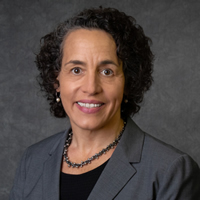CONTACT: Maria Cancian (mcancian@wisc.edu), Daniel R. Meyer (drmeyer1@wisc.edu), or Lisa Klein Vogel (lmklein@wisc.edu)


MADISON — Final evaluation findings from a national demonstration designed to identify effective policies to help noncustodial parents support their children are reflected in a pair of reports issued today by researchers at the Institute for Research on Poverty (IRP) at the University of Wisconsin–Madison and its partner, Mathematica Policy Research. Results show that the program led to modest declines in child support orders (consistent with “right-sizing” these orders), and even smaller reductions in payments. While there was no significant change in child support compliance, the National Child Support Noncustodial Parent Employment Demonstration (CSPED) resulted in major improvements in noncustodial parents’ attitudes towards the program. There was some evidence of increases in earnings, but not in employment. Noncustodial parents’ sense of responsibility to their children also increased. While the benefits to children and parents were outweighed by the costs to government over the first two years, estimates suggest the benefits of CSPED would outweigh its costs over a longer period.
CSPED was launched by the Office of Child Support Enforcement (OCSE) within the Administration for Children and Families, U.S. Department of Health and Human Services, in fall 2012. One report released today examines the effectiveness of CSPED programs, and the other describes the benefits of CSPED programs relative to costs.
CSPED was designed to test the effectiveness of a child support-led program combining case management, enhanced child support, employment, and parenting services for noncustodial parents. The CSPED evaluation examined key outcomes related to noncustodial parents’ (1) child support orders, payments, and compliance, as well as attitudes toward the child support program; (2) work and earnings; and (3) sense of responsibility for their children. CSPED’s goal was to increase the reliable payment of child support by noncustodial parents with barriers to payment, in order to improve child well-being and avoid public costs.
In support of this goal, OCSE competitively awarded funding to implement the program to child support agencies in eight states. Over 10,000 noncustodial parents with difficulty meeting their child support obligations enrolled in CSPED between October 2013 and 2016. Half were randomly assigned to receive extra services as part of CSPED while the other half were randomly assigned to receive regular services. The evaluation results are based on a comparison of outcomes between these two groups, drawing on data from administrative records and surveys administered at enrollment and one year later.
Across both groups, participants who enrolled in CSPED were, on average, disadvantaged. Only 55 percent had worked in the month prior to random assignment, and average earnings among workers were below the poverty threshold for a single person. Less than a third had more than a high school education. Nearly two-thirds had been incarcerated. Most (62 percent) had children with more than one partner.
CSPED participants randomly assigned to the extra services group reported receiving about 22 hours of additional child support, employment, and parenting services compared to those receiving regular services. Extra services participants were also less likely to experience punitive child support enforcement actions (e.g., contempt hearings, warrants issued, or license suspensions) during the first year. Measuring the impact of the program, the impact report released today highlights impacts on key outcomes: (1) child support orders, payments, and compliance, as well as attitudes toward the child support program; (2) work and earnings; and (3) sense of responsibility for children.
In the domain of child support orders, payments, compliance, and attitudes towards the child support program, CSPED reduced current child support orders (by $15 to $16 per month), which is consistent with efforts to right-size orders for low-earning noncustodial parents. The reduction in orders coincided with an even smaller ($4 to $6 per month) and less robust reduction in child support payments.
The program did not improve child support compliance, the outcome used to operationalize CSPED’s central goal of increasing reliable child support. However, CSPED substantially improved noncustodial parents’ level of satisfaction with child support services (68 percent agreed or strongly agreed they were satisfied with services, relative to 46 percent for those receiving regular services). This is an important achievement, and potentially consequential given evidence that noncustodial parents’ negative experiences with the child support program contribute to nonpayment.
In the domain of employment outcomes, the evaluation results indicate that CSPED had no effect on the main measures of participants’ employment. CSPED increased participants’ earnings by about 4 percent in the first year based on administrative data, but had no significant effect on earnings in the first year based on survey data.
Finally, the impact report indicates that CSPED increased noncustodial parents’ sense of responsibility for children, as reflected in their attitudes about the importance of noncustodial parents being involved in their children’s lives and supporting them financially.
The benefit-cost analysis examined the extent to which the benefits generated as a result of CSPED programs outweighed the costs incurred by programs. As reflected in the benefit-cost report released today, over a two-year period, CSPED benefited noncustodial parents, custodial parents, and children, but costs for the government outweighed these benefits. When extrapolating the benefits over a longer period, reasonable assumptions suggest that the overall benefits of CSPED would outweigh its costs.
Overall, findings from CSPED suggest that the potential exists for child support agencies to lead broader interventions, incorporating components beyond child support services alone, aimed at helping unemployed and underemployed noncustodial parents to increase the reliability of their financial support for their children. Results suggest that these efforts can improve noncustodial parents’ attitudes towards the child support program and sense of responsibility for their children, and reduce punitive enforcement with bigger impacts on right-sizing orders than on reducing payments.
Making progress in improving the regular payment of child support will be challenging. However, results from the CSPED evaluation indicate that noncustodial parents are open to reassessing their relationship with the child support program. This finding points to the potential for creating a more collaborative and productive approach to securing financial support for children from noncustodial parents who are unable to pay their child support.
In addition to IRP’s Dr. Cancian and Dr. Meyer, Robert G. Wood, Senior Fellow, Mathematica Policy Research, also served as Principal Investigator for the demonstration; Lawrence Berger, Katherine Magnuson, Quinn Moore, and Jennifer Noyes served as co-investigators. Dr. Cancian, Dr. Meyer, and Dr. Wood led the team that completed the impact report, and Dr. Magnuson and Dr. Moore led the team that completed the benefit-cost report. The CSPED Project Director is Lisa Klein Vogel, IRP Researcher.
###